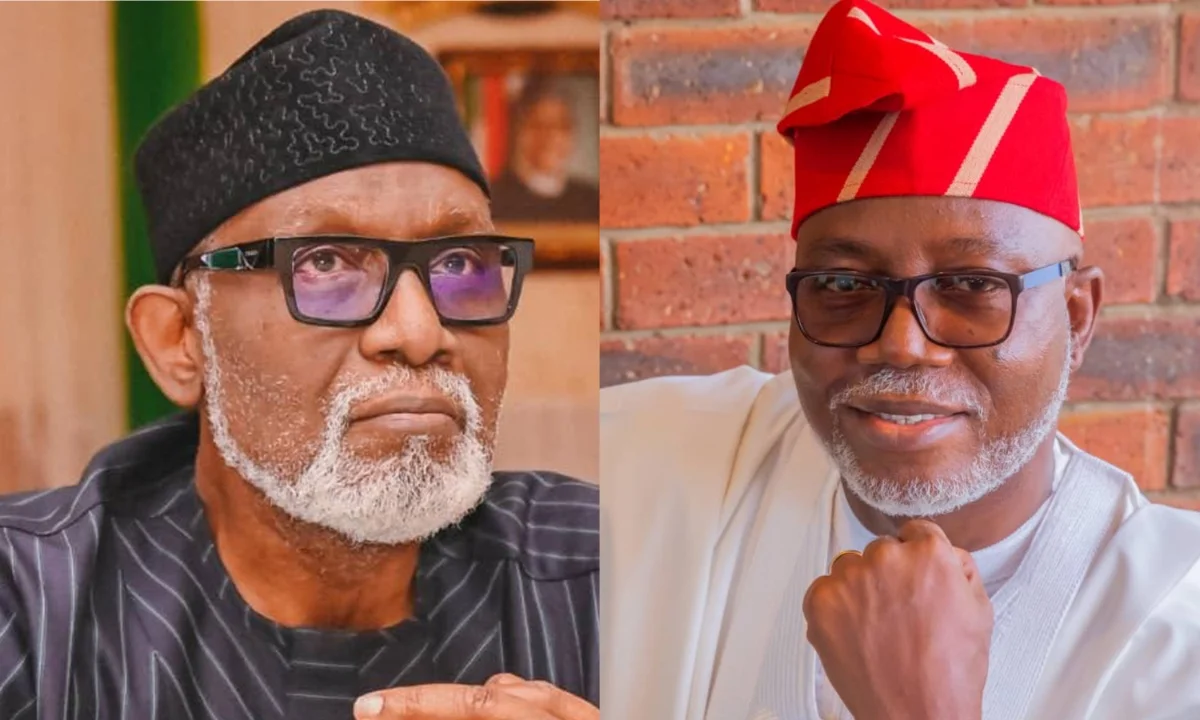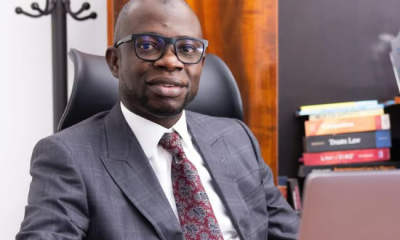Section 188 of the Constitution of the Federal Republic of Nigeria 1999, provides for the removal of governor or deputy governor from office through the process of impeachment.
The process consists of a written allegation of gross misconduct against the accused person who has a right to defend himself. If his defense succeeds, he is expected to be left off the hook; if not, he is removed from office.
The said section 188 spells out in detail, the procedures and steps to be taken to consummate the process. Although, several deputy governors have been impeached since 1999 when democracy was restored to Nigeria, none of the impeachments has ever escaped from crass political rascality and abuse of process.
The legislators always leave no one in doubt that their aim is always to carry out a hatchet job.
To start with, whereas the constitution expects any impeached executive to have committed gross misconduct, the meaning of gross misconduct to legislators is imaginary.
For example, Mahdi Aliyu Gusau, former deputy governor of Zamfara state was impeached in 2022 for refusing to defect along with his governor from the Peoples Democratic Party PDP to the All Progressive Congress APC.
To Zamfara legislators that amounted to an abuse of office, criminal self-enrichment and failure to discharge his constitutional duties.
If that perception was taken as rational, Nigerians especially citizens of Anambra state would have wondered why the same punishment was not meted to their own former deputy governor, Nkem Okeke, who abandoned his principal in the All Progressive Grand Alliance (APGA) in October 2021 to defect to the APC.
Whereas political movements from one party to another are not illegal, Rauf Olaniyan former deputy governor of Oyo state was impeached in 2020, over his defection from the Peoples Democratic Party (PDP) to the All Progressives Congress (APC).
The same charade had earlier taken place when Peremobowei Ebebi, the former deputy governor of Bayelsa state was impeached in June 2010 by the State House of Assembly.
Two charges for which Sunday Onyebuchi was impeached as deputy governor of Enugu state in 2014 were, one: “gross misconduct” of running a poultry farm in his compound while the second, was absence from an assigned function.
When video evidence showed he was actually at the event, the exact location where he sat was declared inappropriate and offensive.
Ondo state is one of the states where the impeachment of deputy governors is not new. Already, two deputy governors, Olanusi Ali and Agboola Ajayi have had a taste of the bitter political hobby.
Only last week, Ondo legislators served an impeachment notice on Lucky Aiyedatiwa the current deputy governor over allegations of gross misconduct.
Aiyedatiwa acted as governor of the state until September 7, 2023 when the substantive governor Rotimi Akeredolu SAN returned from a three-month medical leave.
Unfortunately, the House of Assembly has not properly educated the public on Aiyedatiwa’s list of gross violations.
An opportunity presented to the House last Tuesday by channels television was poorly utilised by the tongue-tied presentation of its spokesperson and chairman of the House committee on Information, Oshati Olatunji.
All that Oshati did was to repeatedly affirm that the proposed impeachment was not a witch-hunt while failing to underscore its inevitability.
Viewers were left to feel that the allegation of misappropriation of N300 million was a political story.
Considering that the House considers the matter strong enough to warrant an impeachment proceeding, the public expects a thorough investigation of the allegation.
Who approved the amount? To whom was it paid and for what purpose? When was it concluded and what roles did the tender’s board and the audit department play?
These are important questions because Ondo state legislators had in the past been projected as a group that has an inclination to concoct stories just to win an argument. Thus, governor Akeredolu needs to watch them.
In 2019, the leadership of the assembly allegedly hatched a plan to arm twist their state governor whom they felt was frugal and who refused to release funds to them for the renovation of their deplorable chambers constructed in 1976.
The game plan was to fabricate a story of snake invasion of the chambers as well as the collapse of the ceiling during plenary. Using intelligence from his loyalists in the House, the governor openly castigated the legislators for fabricating the story.
On further probing, the media gathered that N2m was allocated to the assembly every year for the past ten years for fumigation of the complex while N57m allocation was given to the legislators on monthly basis.
Although the law-makers managed to hold-on to their cock and bull claim, the matter died a natural death. How are we sure that the new attack on the deputy governor is not another plot?
Akeredolu needs to be cautious because while some of the ring leaders of the new design may be seeking to merely demonstrate their loyalty to him, others may be looking forward to making direct material gains from the subject because it is an open secret in Nigeria, that many legislators expect financial rewards for ‘helping’ a governor to sack a perceived disloyal deputy.
In Kogi State for instance, the legislators held-on tenaciously to their loyalty to the governor by ensuring that an alleged recalcitrant deputy governor Simon Achuba was still impeached even after the panel they set up to investigate him cleared him of any wrong-doing.
As Sunday Onyebuchi former deputy governor of Enugu state testified after his impeachment was quashed in court, some of those who perpetuated injustice against him, came “to confess and plead for forgiveness saying they were used.”
What seems to matter in Nigerian impeachments is that it is always successfully used to settle scores even if the legislators concerned are made to look foolish after gratification.
They can change any rule or procedure just to achieve the goal. In the case of Mahdi Gusau former deputy governor of Zamfara state, the legislators severally redrafted the Order Paper on the day of his purported impeachment.
First, it was simply to deliberate, consider, adopt and vote for the impeachment/removal of the deputy governor. That same day a letter sent by the governor nominating a new deputy governor necessitated redrafting the Order Paper to reflect invitation to the deputy governor-nominee for screening.
Thereafter, the Clerk of the House transmitted the resolutions to the governor who then invited the state chief judge, to swear-in a new deputy governor: all within a few hours.
ALSO READ: Ondo lawmakers bribed to impeach Aiyedatiwa, group alleges
Another reason why governor Akeredolu must be himself – a gentleman to the core, is the lesson of history which points to the futility of Nigeria’s fake impeachments. First, his legislators can back-off from the plan midway.
They did it before in July 2020 when 9 of the 26-member State House of Assembly dissociated themselves from the planned impeachment of the state’s Deputy Governor, Agboola Ajayi. The 9 members said they were not convinced that the deputy governor did anything wrong deserving his impeachment.
This frustrated the planned impeachment of Agboola. Again, another deputy governor of the state, Olanusi Ali who was earlier impeached had his impeachment invalidated by the courts.
It is also important to note that on a few cases, some judges with unassailable principles may not play ball in an impeachment process.
A good example can be located in Imo state where Justice Ben Iheka displayed great courage in 2018 by restraining the panel set up by his Chief Judge from taking further action in the illegal impeachment process of deputy governor Eze Madumere.
And back in Ondo state, there was the persuasive stance of the State Chief Judge, Oluwatoyin Akeredolu, who in 2020 faulted an impeachment process embarked upon by the legislature.
She accordingly declined to set up an investigation panel while also giving due recognition to the existence of a restraining court order on the subject.
All well-meaning Nigerians particularly the alumni of the great Loyola College Ibadan who have remained in praise to God for our brother’s recovery are against mischief makers disturbing his peace.
They are free to follow the due process of law as enshrined in s188 of the constitution in dealing with deputy governor Aiyedatiwa, without involving Akeredolu who was out of the state when the alleged misconduct reportedly happened.


















